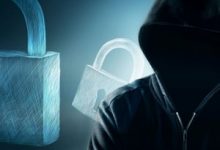The dark web: A closer look at its threats and implications for information security
The dark web, often portrayed as a mysterious and dangerous place, has attracted immense attention in recent years. It is an encrypted network that can only be accessed through specialized software, allowing users to browse anonymously. While it is often associated with illegal activities and shady dealings, it is essential to take a closer look at its threats and implications for information security.
First and foremost, it is crucial to understand the difference between the dark web and the deep web. The deep web refers to any part of the internet that is not indexed by search engines, including password-protected websites, online banking portals, and private databases. The dark web, on the other hand, is a small portion of the deep web that requires specific tools to access and is known for facilitating illicit activities.
One of the most significant threats associated with the dark web is its role as a marketplace for illegal goods and services. From drugs and weapons to stolen credit card information and hacking tools, virtually anything can be bought or sold on these platforms. This thriving marketplace fuels the growth of cybercriminal organizations, supporting their illicit activities and compromising users’ security.
Furthermore, the anonymity provided by the dark web attracts various types of criminals, including hackers and extremist groups. They exploit the secure communication channels and use the dark web as a platform for planning and coordinating attacks, sharing malicious software, hacking guides, and stolen data. This heightens the risk for both individuals and organizations as their sensitive information can be compromised and used for malicious purposes.
In addition to criminal activities, the dark web also poses a significant risk to individual privacy. Law enforcement agencies sometimes infiltrate these hidden networks to gather intelligence and identify criminals. However, this creates a concern that innocent individuals may also be under surveillance, eroding personal freedom and privacy rights.
From an information security perspective, the dark web presents a unique set of challenges. For instance, threat intelligence and monitoring become increasingly complex as cybercriminals shift their operations to the hidden corners of the internet. Traditional security measures and tools often fail to detect or prevent attacks that originate from the dark web, necessitating the development of specialized techniques and expertise.
Moreover, the dark web amplifies the impact of data breaches. When credentials, personal information, or financial data are compromised, they can quickly make their way to the dark web, where they may be sold or traded. This further highlights the importance of robust cybersecurity measures, such as encryption, multi-factor authentication, and regular data backups, to minimize the potential damage caused by breaches.
To combat the threats posed by the dark web, governments and law enforcement agencies worldwide are increasingly investing resources in targeting and dismantling criminal networks operating on these platforms. Collaboration between international agencies, improved legislation, and advanced technologies are crucial to effectively combat the dark web’s criminal activities, protect individuals, and preserve information security.
However, it is equally important for individuals and organizations to take responsibility for their own security. Prioritizing strong passwords, regularly updating software, being cautious of suspicious links or attachments, and implementing robust security measures are essential steps to mitigate the risks associated with the dark web.
In conclusion, while the dark web remains shrouded in mystery, it presents significant threats and implications for information security. Its role as a marketplace for illegal activities, its ability to enable criminal coordination, and its impact on individual privacy emphasize the need for proactive measures to protect oneself and one’s data. Strengthening cybersecurity practices, staying informed, and supporting government initiatives to combat cybercrime are all critical steps in safeguarding against the dangers of the dark web.





